On February 27, 2023, after a long process of construction, Wikipedia in wayuunaiki was finally born.
In August 2008, a group of activists from Venezuela, led by user Maor Melul, proposed two projects to the Wikimedia Language Committee. These projects were accepted and moved to the Wikimedia Incubator. One project was for Wiktionary and the other for Wikipedia. Afterwards, began the construction and development of the interface and other technical issues related to the operation of these projects.
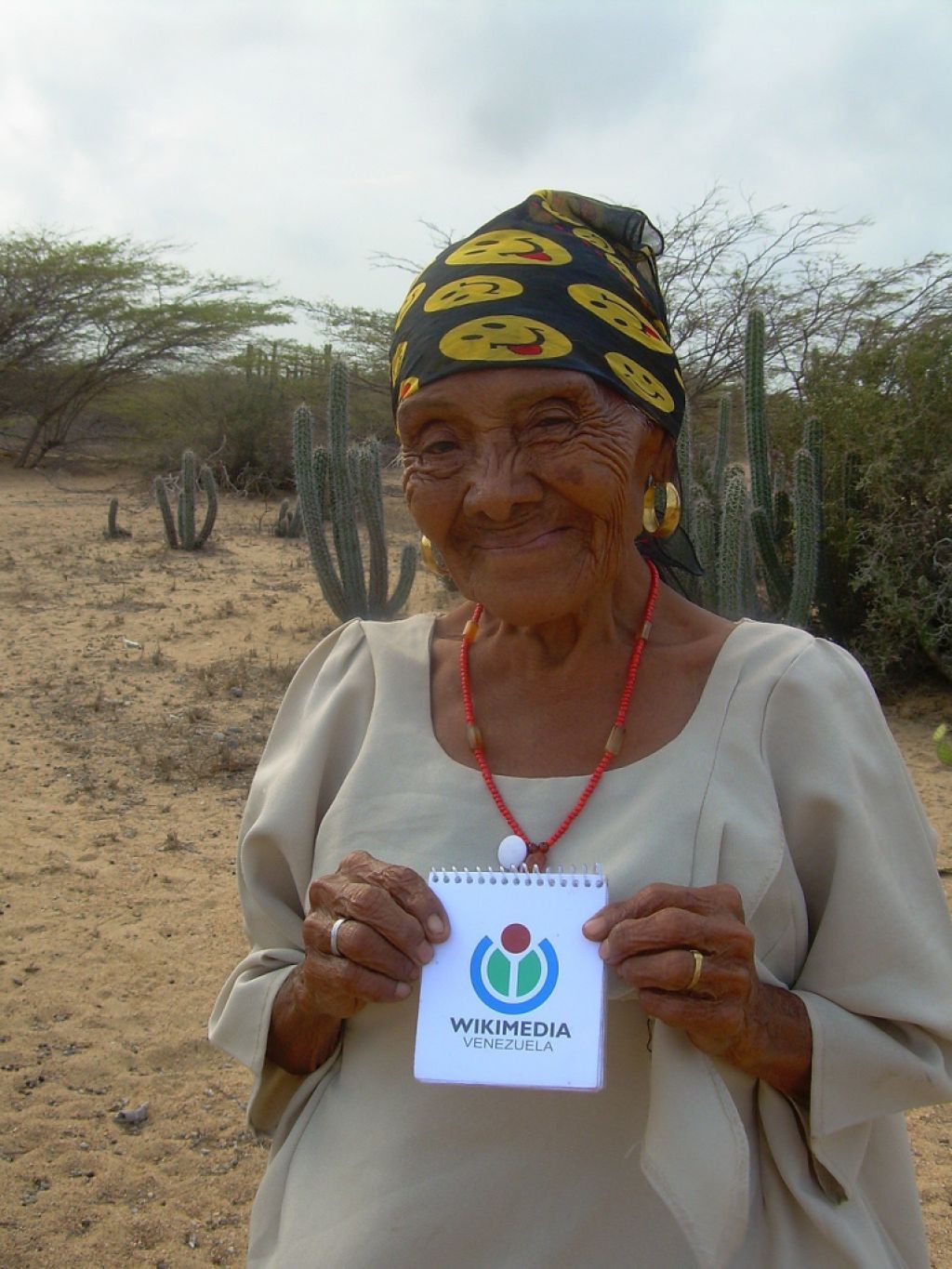
The construction of both projects aimed to reclaim and promote Venezuelan indigenous themes, specifically focusing on Wayuu knowledge, to reaffirm identity and prevent the loss of the Wayuunaiki language. At the same time, this process would encourage the use of the language in areas such as education and the digital space.
Year 2011
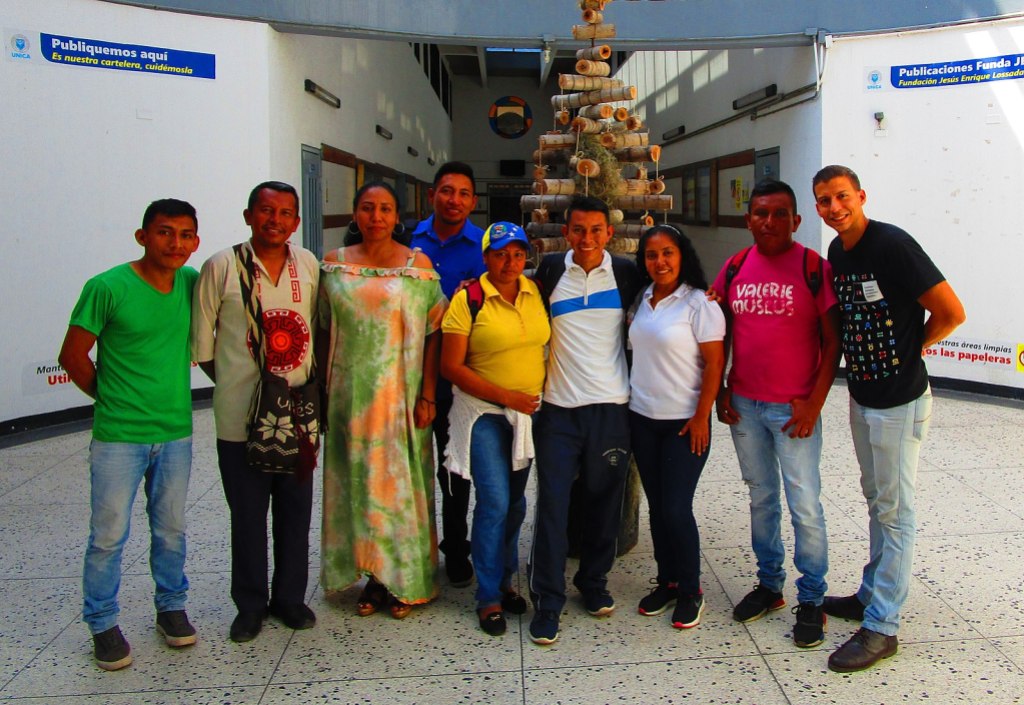
Some native Wayuunaiki speakers began to participate in the project contributing to the translation of the interface and developing articles. However, it wasn’t until 2018 that Wikimedia Venezuela successfully organized a workshop in Maracaibo, a city with a significant Wayuu population, edit-a-thon that had the support from leaders and academics from different sectors connected to Wayuu knowledge, including the University of Zulia, Cecilio Acosta University, and Venezuelan linguist José Álvarez.
Year 2019
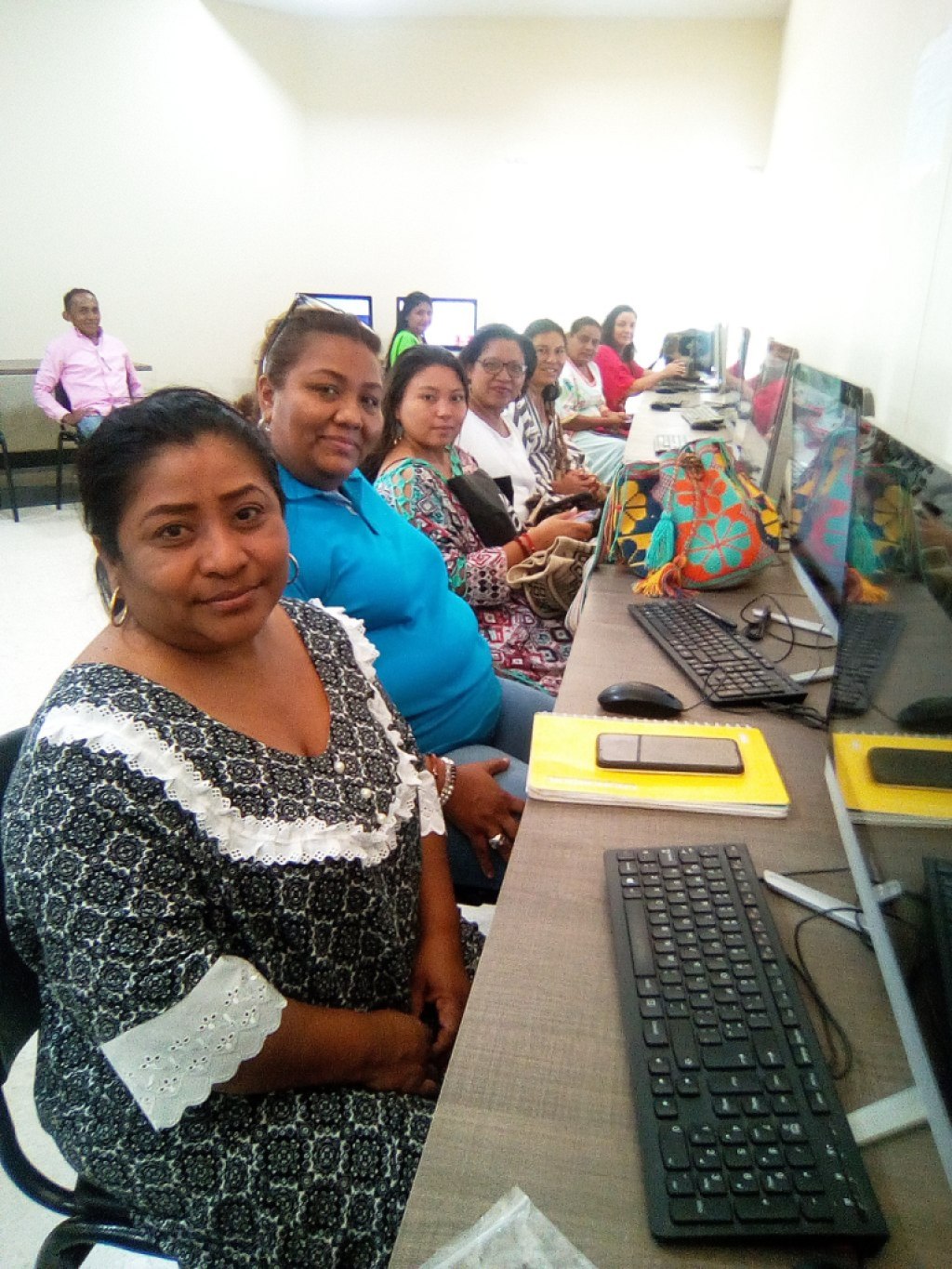
Wikimedia Colombia organized a set of workshops specifically designed for women leaders in Maicao, a border city in Colombia. These workshops received support from the Internet and Society Center at Universidad del Rosario. In 2021, the Eje’ipajirawaa Tijitaalü Wayuu project was launched in collaboration with ISUR and the KARISMA Foundation. This project aimed to assist the Wayuu community by establishing a local network that offered essential resources and tools like Kiwix and MediaWiki. These resources were made accessible for use in rural and disconnected areas.
Year 2022
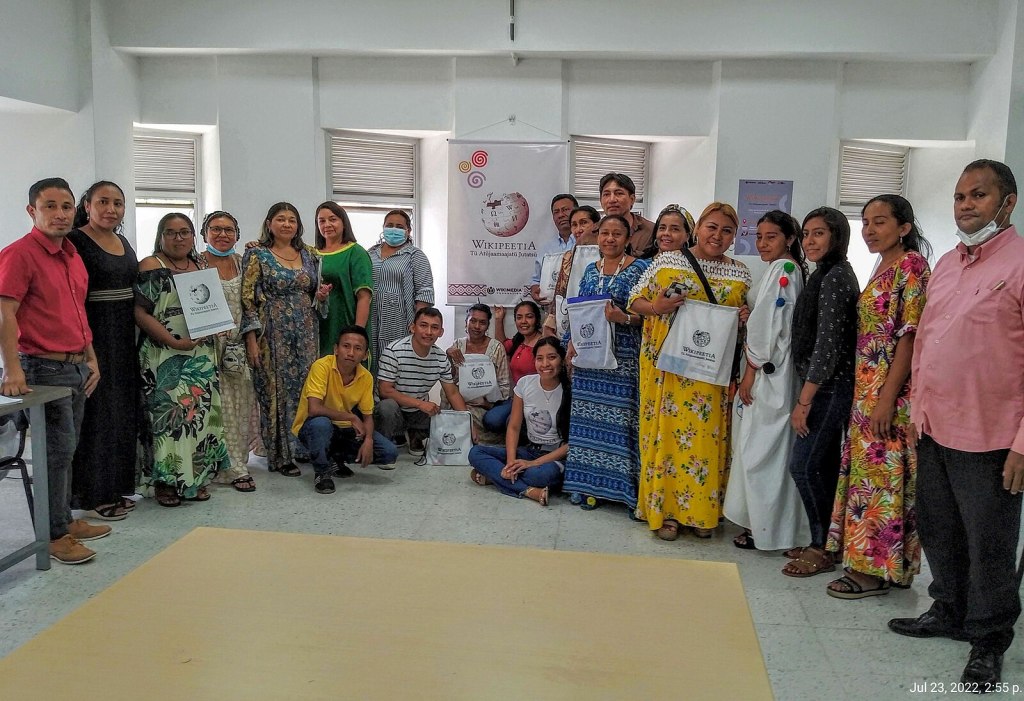
Wikimedia Argentina, in collaboration with Wikimedia Venezuela, developed a portal dedicated to compiling materials related to the Wikipedia project in Wayuunaiki and providing easier channels to direct user editors to the editing pages in the Wikimedia Incubator for the projects Wikipeetia and Wikipütchimaajatü.
Finally, all the effort and support received from various institutions led to a group of Wayuu activists organizing themselves and coming together to continue the process started in 2008. This group called itself Wikimedistas Wayuu and was formed with all the editors male and female that resulted from the different events and workshops held in different areas such as Maracaibo (Ven), Maicao (Col), and Riohacha (Col).
Wikipeetia is born
The group of activists grouped in Wikimedistas Wayuu supported by the Wikimedia Foundation and the Fundación KARISMA, began to develop edit-a-thons and activities that complemented the training process, an effort that sought to maintain the monthly count of edits on the Wikimedia Incubator platform and the translation of the most important messages of the Wikipeetia interface through traslatewiki.
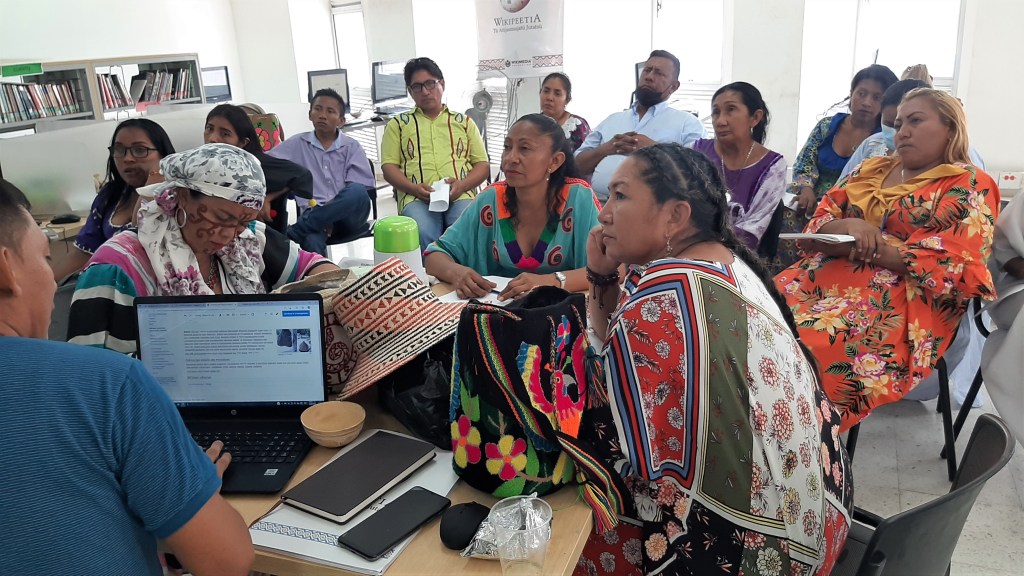
With the workshops held from July to December 2022, there were 6 months of work that evidenced the territorialization process that was sought in principle and the increase of editors male and female committed to the Wikipeetia and Wikipütchimaajatü projects. The editing process managed to transcend and even in months that did not have in-person on-site workshops, such as January and part of February, which for the project meant a real interest in giving continuity to the construction process.
It was not until February 27, 2023, that the missing steps were completed and Wikipeetia süka wayuunaiki was born before the wikimedia community of the region and the Wayuu community itself.
Projects that support the educational process
After the creation of Wikipeetia süka wayuunaiki, several institutions understood the importance of having a repository for Wayuu knowledge and the impact of Wikipedia in Wayuunaiki in promoting the language and culture to the global community but also to the Wayuu community itself that is accessing content.
The teaching community recognizes the importance of exposing their students to content that reflects Wayuu knowledge and language, as it is a way to generate collective interest and a way to motivate students to read and write in their native language.
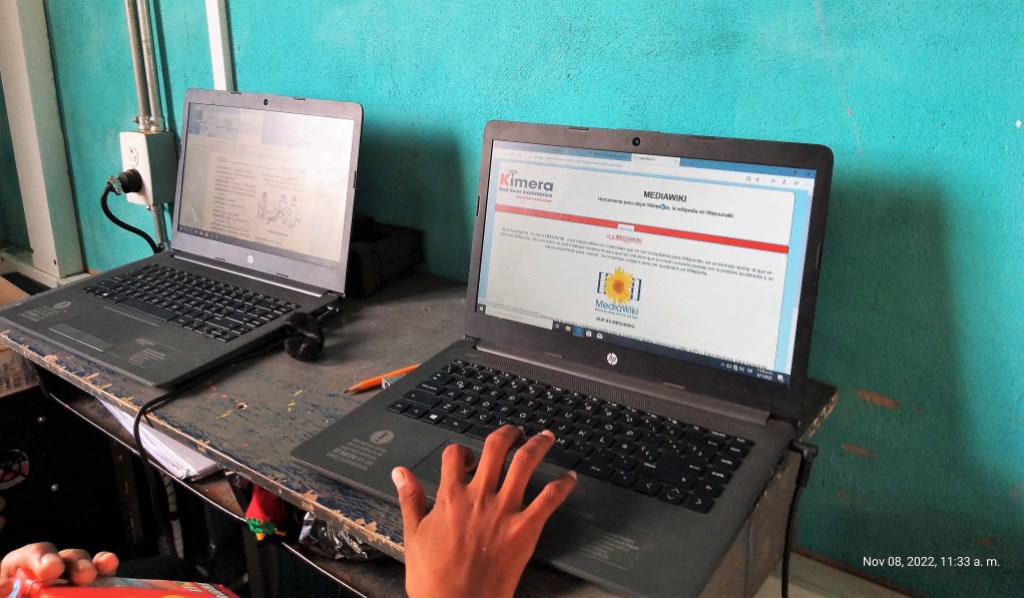
Many of the teachers that make up the group of Wikimedistas Wayuu are active in their respective educational institutions, some from the Venezuelan Guajira, specifically from areas such as Paraguaipoa, Guarero, Maracaibo and Cojoro, while on the Colombian side there are ethno-educators from institutions such as Masülein, San José Campestre, Talo’uluma’ana and La Paz.
As teachers who are actively involved in their work areas, our objectives are to encourage them to use of Wikipeetia süka wayuunaiki in the planning processes, that male and female teachers can merge their activities and strategies with the use of Wikipedia and that digital tools can be used for students to access knowledge in their languages.
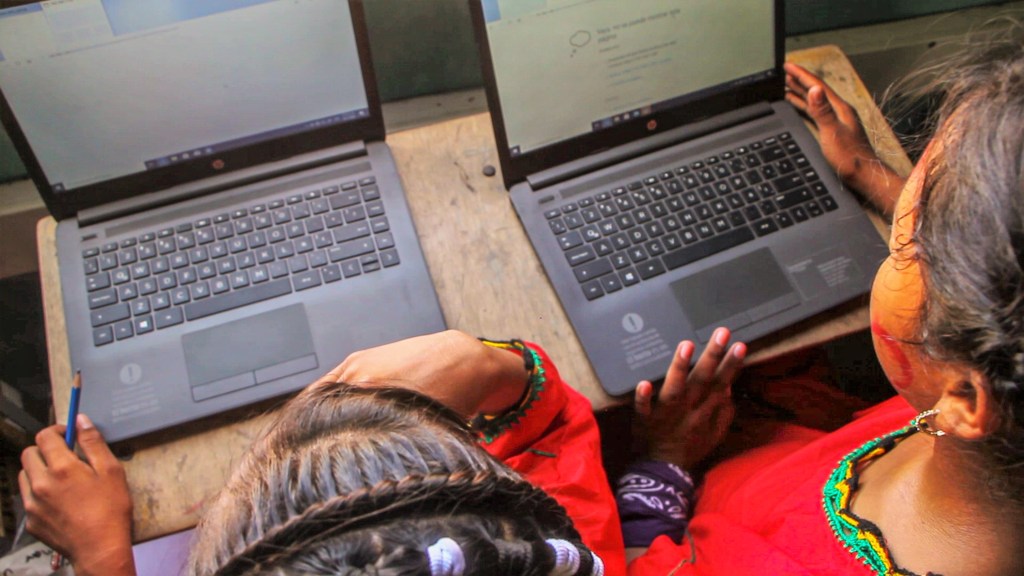
Wikipedia in Wayuunaiki is becoming an important place to share the cultural world from the Wayuu community’s point of view. It helps us value the knowledge that has been passed down through generations, in this case making use of several tools such as writing and technological development.
Acknowledgements
To the Wikimedia Foundation, to the chapters and groups in the region that have followed and supported our work. To KARISMA and ISUR for the experience and support.
To the teachers who are part of Wikimedistas Wayuu, who enthusiastically promote Wikipeetia and Wikipütchimaajatü from their spaces.
Learn more about our experience
Categoría en Wikimedia Commons – Wikimedistas Wayuu
Canal de youtube: Wikimedistas Wayuu

Can you help us translate this article?
In order for this article to reach as many people as possible we would like your help. Can you translate this article to get the message out?
Start translation